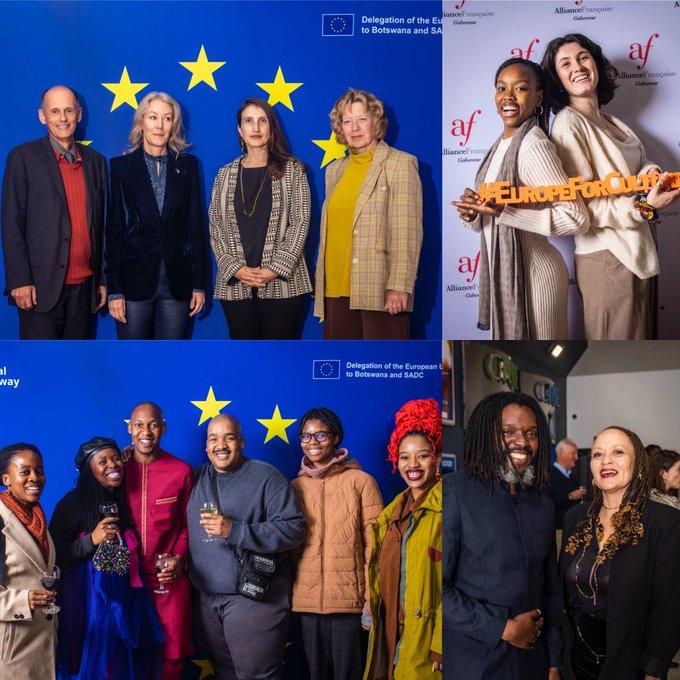European Film Festival in Gaborone

The Film Festival in Gaborone Concludes with a Powerful Message
The EU Delegation to Botswana and SADC organised for the seventh time the annual European Film Festival at New Capitol Cinemas in Gaborone, Botswana last week. The festival was organised in partnership with Alliance Française in Gaborone and with the support of EU Member States - Germany and France in particular, thanks to their invaluable contributions to this opening evening and the reception. This year we screened a varied selection of award-winning films from all corners of Europe, catering for wide audiences in Botswana, including families, school children and the youth, and offering stories that transcend borders and speak to the universal human experience that unites us all.
The European Film Festival is more than just a celebration of cinema. It is an opportunity to share culture through the powerful medium of film. The main goal was to bring the highest quality films right here to Botswana.
In opening, EU Ambassador Petra Pereyra underlined the purpose of the festival in promoting cultural exchange and dialogue: “At a time when the world often feels divided and turbulent, events like the European Film Festival remind us of our shared humanity, our common dreams, and the connections that unite us all.”
On 18 June, the festival kicked off with the screening of Waves, the Czech Republic’s entry at the latest Oscar Awards, which is a gripping thriller that reminds us of the courage to speak truth to power. The film is set in the 1960’s, and took the audience on a compelling journey through history, as it sheds light on the tense period leading up to the Warsaw Pact invasion of Czechoslovakia — a powerful testament to those who dare to fight for freedom, even when faced with daunting odds.
On Thursday, the movie Norwegian Dream was screened, a touching drama about a Polish migrant, navigating themes of migration, belonging, and identity. The screening was followed by a panel discussion hosted by Alliance Française and Botswana-based human rights advocacy group focused on the legal and social rights of the LGBTIQ+ community. The Count of Monte Cristo was among the festival’s highlights, a stunning historical adaptation of the classic French novel written in 1844 by Alexander Dumas, which was recently nominated at the César Awards.
On Saturday morning, the festival continued with a double feature: Flow, an Oscar award-winning animated film from Latvia for the whole family, and Once Upon a Time in a Forest, a moving Finnish documentary about youth-led environmental activism and love.
The festival closed on Saturday evening as the movie Intercepted was presented— a Ukrainian film that powerfully narrates the human cost of conflict against Russia’s war of aggression. This gripping film is narrated by real intercepted phone calls from Russian soldiers during the early days of the full-scale invasion of Ukraine. A lively question-and-answer session followed the screening led by a diplomat from the Ukrainian Embassy in Gaborone. This masterpiece has sparked conversations about social issues and human rights, reminding us all of cinema’s incredible power to ignite change and foster understanding.
